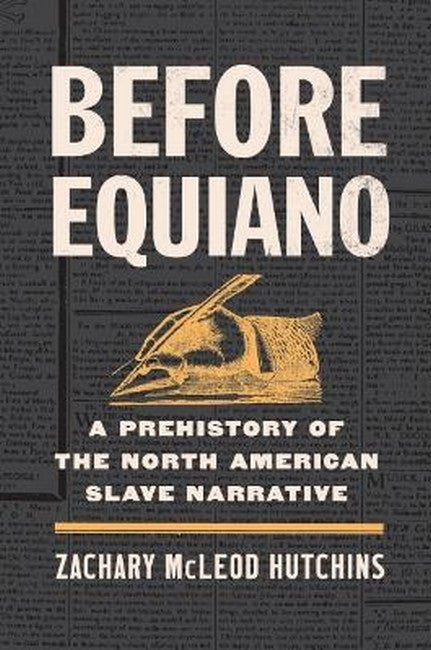Zachary Hutchins is associate professor of English at Colorado State University and co-editor of The Earliest African American Literatures: A Critical Reader.
Request Academic Copy
Please copy the ISBN for submitting review copy form
Description
"Before Equiano demonstrate[s] fresh ways of understanding African American literature. . . . Scholars interested in the complex history of race, slavery, and literacy in early American should save a place on their shelf for [this work]."--William & Mary Quarterly "Before Equiano . . . makes important contributions to our understanding of colonial conceptions of enslavement and highlights the significant differences between eighteenth-century views of slavery and those Americans held in the antebellum period. . . . [A] valiant effort to recover the words, the lives, and, above all, the mind-set of enslaved people engaged in influencing colonial conceptions of enslavement in the eighteenth century."-Journal of American History "Before Equiano is such a beautiful achievement. It is the first comprehensive study of the rhetorical habits, historical contexts, and discursive strains of the slave narrative prior to its consecration in the antebellum era; in short, it is the story of the slave narrative before it became the slave narrative."--American Literary History "Before Equiano, through its emphasis on the eighteenth-century periodical record, provides important context for the nineteenth-century slave narrative and for a Black life writing tradition more broadly."-- Eighteenth-Century Studies "Hutchins makes an important contribution to the growing scholarly interest in expanding our understanding of what a published 'slave narrative' was by investigating the eighteenth-century origins of what is usually understood to be a nineteenth-century Anglo-American genre."--H-Early-America "Scholars of the literature of slavery and, indeed, the slave narrative, have a great deal to learn from Before Equiano... With its explicit reliance on both the archive and the critic's "imaginative readings," [it] affirms the need for early Americanists to continue to think carefully about the purposes and methodologies of historicist literary criticism." -Early American Literature

